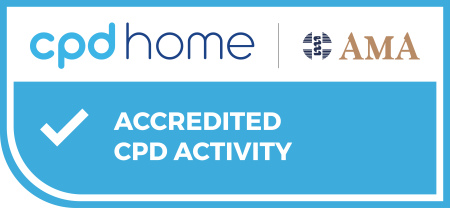Finding accredited CPD
Asthma and Other Respiratory Problems in Child and Adolescent is a practical, evidence-based course designed to equip healthcare professionals with the knowledge and tools to effectively manage common pediatric respiratory conditions. Delivered in four detailed units, the course focuses on asthma, croup, bronchiolitis, and community-acquired pneumonia.
Unit 1: Asthma - Introduction and Diagnosis
This unit provides an in-depth overview of pediatric asthma, including:
Unit 2: Asthma Management
Dive into comprehensive asthma management strategies, including:
Unit 3: Croup and Bronchiolitis
This unit addresses two common respiratory conditions in children:
Unit 4: Community-Acquired Pneumonia (CAP)
Explore the clinical presentation and management of CAP in children, including:
This course is an essential resource for healthcare providers managing pediatric respiratory conditions, ensuring confidence and excellence in patient care.
Cost: $195
Suitable for: All degree qualified medical practitioners.
Study mode: 100% online
Disclaimer: Please note, once you click 'Register now' you will be leaving the AMA’s CPD Home website and entering a third-party education provider’s website. If you choose to register for this learning, you will need to provide some of your personal information directly to the third-party education provider. If you have any queries about how third-party education providers use, disclose or store your personal information you should consult their privacy policy.
Upon completion, your CPD activity record may take up to 4 weeks to be reflected on your CPD Home Dashboard.
You have to log in to see the content of this module.
Provided by
Accredited by

*Medical Board of Australia’s (MBA)’s revised Registration Standard: Continuing professional development (the Standard)